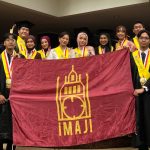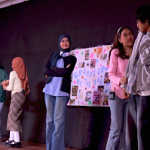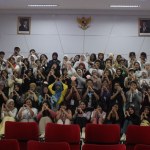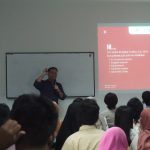Arsip:
IISMA
Studying abroad is a dream for many students including one from English Studies Program UGM, Benedicta Angie. Since childhood, she had been curious about how people live their lives abroad.
One of the English Studies Program students, Azizah Putri Chandra Kusuma, spent a whole semester at Siena, Italy as an IISMA awardee. IISMA is a study abroad exchange program held by the Ministry of Education, […].
A year prior to his enrolment to IISMA, Elkholy was already certain that he wanted to participate in this program. In order to succeed, this English Literature student of Batch 2021 had prepared himself by […].
Waking up in a room with a view of yellowing and reddening trees would have been my wildest dream until a year ago. Every new thing that I have experienced from last year’s September until […].
The past four months might have been the best four months of my life. Indonesia International Student Mobility Awards has given me a chance to study at one of the most prestigious universities in the […].
My name is Farah Nadira Lukita Dewi, a first batch IISMA Awardee to the University of Padua, Italy, for the fall semester of 2021. I was in my second year of undergraduate studies in the […].
Joining the IISMA (Indonesian International Student Mobility Awards) program has been the highlight of my academic life. Ever since I entered university, I wanted to join an exchange abroad so I could learn more about […].
Hello, folks! I am Nazra from English Department 2019, and I was awarded the IISMA scholarship during its 2021 pilot project. Here, I have written several bits of reflections that I deem to be notable […].
Studying in Ireland through IISMA was a lot of firsts for me: first time going away from home for a long period of time, first time going overseas, and first time studying abroad.
My name is Monica Audrey Widiany Kusteja Putri from batch 2018. I’m currently the last year of my undergraduate studies here the English Department, and in the fall of 2021, I was granted the most […].








